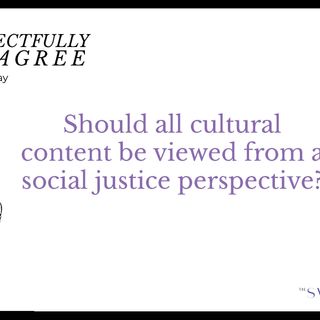
Why Do We Crave and Distrust Kindness Simultaneously?
As children we were told being kind is good, which also means we suspect kindness as only a performance of ‘goodness.’

Most cultures place kindness on a pedestal — preaching it, teaching it, striving to do it, the works. Yet we, as humans, receive individual acts of kindness with a surprising amount of distrust.
An act of kindness — say, a compliment from an acquaintance — can leave us wondering what that person could want from us. Saccharine, or excessive, kindness is looked down upon as ‘try-hard’ or people-pleasing. An act of altruism always makes us curious of intent — especially when it comes from a stranger. This leaves us with a paradox — we must practice kindness in order to be good people, but if we accept kindness too easily or quickly, we’re just gullible or not worldlywise. Why is a glorified act of altruism received with such distrust?
A potential reason for why acts of kindness make us wary is that we’re wired to stay distrustful of those who aren’t close to us, and the ways in which we navigate how to trust are often not objective yes/no situations. Research has previously found that human beings trust strangers who have the same facial features as their friends, and distrust people who have facial features similar to an immoral person in their past. Human beings also are averse to trust when they’re thinking negative things, making trust very mood dependent. The most ridiculous example of trust depending on moods? Sometimes, children won’t trust a person simply because they’re ugly.
Trusting isn’t a black-and-white moral compass thing, nor is it an accurate go-with-your-gut thing; it’s subjective and dependant on each individual’s personal life experiences — making everyone’s reactions to kindness quite different from one other.
Related on The Swaddle:
What Are Good Manners for Kids, Anyway?
However, “Distrusting kindness isn’t necessarily a terrible thing,” says Aakriti Joanna, a psychologist and the founder of Kaha Mind, an online counseling platform. “For women especially and people who have experienced traumatic childhoods, because we’ve seen so many instances of, ‘I trusted them and this is what happened,'” distrust could be a mechanism by which to survive. Joanna added that, though women are expected to present as kinder and warmer than men, societal discourse around women’s safety puts the onus of staying wary of suspicious behaviors on women at the same time. Additionally, “suffering trauma, especially in their childhood, [can] make [people] feel like they don’t deserve kindness. They often push it away because they think it is too good to be true,” Joanna said.
Another, albeit more benign, reason to distrust kindness is watching the performance of it. From the hospitality of Indian culture to a celebrity’s documentation of their own charitable acts on social media, kindness may feel more like a showcase of one’s altruistic persona than a basic good deed. Often, this is a result of large-scale societal peer pressure — growing up in societies that canonize kindness can make it very hard for an individual to say “No.”
This distrust of extravagant kindness is dependant on intent. The way we parse intent is vital to understanding how we decipher acts of kindness. One can accept an act of kindness, but one could still remain distrustful of the supposedly kind individual due to preconceived notions of their intent and previous reputations. For example, people tend to associate kindness with simplicity and humility; research even states that the most trustworthy people are the most guilt-prone, as not doing kind things (even when they don’t want to do them) might elicit guilt in these individuals. Guilt-prone people might be the least likely to celebrate their kindness, as it may feel arrogant, which could cause more guilt. Perceived intent is also why we view less well-off people as more generous than the affluent, even though the latter include publicly visible philanthropists with more to give.
Related on The Swaddle:
How to Spot a Trustworthy Person
Most people also do not like extremely kind or altruistic acts because such acts make them look bad in comparison. In this case, distrust is rife because altruism is a competition. Pat Barclay, an associate professor of psychology at the University of Guelph carried out research on the punishment and/or derogation of do-gooders. “When faced with a Mother Teresa [altruist], how can a normal person compete? One option is to step up one’s game and actively compete to be more generous (‘competitive altruism’). A second option is to bring the best co-operators down … via do-gooder derogation and antisocial punishment. This manifests as suppressing someone’s co-operation or work ethic, inferring ulterior motives for altruistic actions, implying real or imagined hypocrisy (‘He’s a vegetarian, but wears leather shoes!’), attacking them on unrelated dimensions or outright punishing them,” he wrote in The Conversation.
Distrust in kindness can be helpful, just petty, or unnecessary overthinking, depending on the millions of permutations and combinations that human interactions can occur in. There’s no great harm in the act of distrusting altruism — we do not suffer from it beyond occasionally bemoaning how we pegged someone wrong. While the exaltation of kindness and the joy of practicing it forms an important facet of a mental health positivity, so does initial distrust — it protects us and teaches us to trust our instincts, regardless of how off they might be at first. The important discovery one must make is the scale of their distrust and where it may stem from; the self-awareness of which can help one determine if they need a therapist to navigate their trust issues. Kindness and wariness may be paradoxical in nature but, it turns out, they might complement each other just fine.
Aditi Murti is a culture writer at The Swaddle. Previously, she worked as a freelance journalist focused on gender and cities. Find her on social media @aditimurti.
Related


Media, Fans, Listen to Anushka Sharma: Wives of Cricketers Are Not Your Punching Bag
